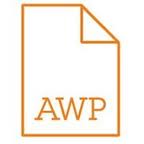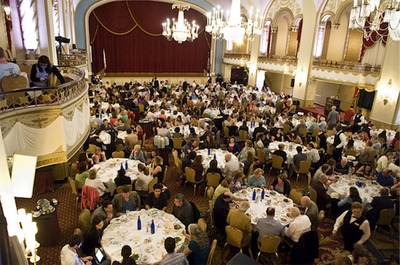Monday Markets for Writers
Monday brings the weekly batch of no-fee competitions/contests, paying submission calls, and jobs for those of us who write (especially those of us who write fiction, poetry, and creative nonfiction). (more…)
Monday brings the weekly batch of no-fee competitions/contests, paying submission calls, and jobs for those of us who write (especially those of us who write fiction, poetry, and creative nonfiction). (more…)
 On Saturday, I caught an early-morning train up to Boston and spent a lovely afternoon and evening at the annual conference of the Association of Writers and Writing Programs (AWP) conference. I was not a conference presenter; I was not a Bookfair exhibitor; I did not even register for the conference this year. But a wonderful (and generous) writer friend offered me a place to crash, so I decided to take advantage the event’s relative proximity to New York (and the complimentary Bookfair access granted to the public for Saturday only).
On Saturday, I caught an early-morning train up to Boston and spent a lovely afternoon and evening at the annual conference of the Association of Writers and Writing Programs (AWP) conference. I was not a conference presenter; I was not a Bookfair exhibitor; I did not even register for the conference this year. But a wonderful (and generous) writer friend offered me a place to crash, so I decided to take advantage the event’s relative proximity to New York (and the complimentary Bookfair access granted to the public for Saturday only).
As always, the time I spent catching up with friends–including folks I’ve met through previous AWP conferences and typically see only in those settings–was the absolute best part of being there. But here are five other highlights from my whirlwind visit: (more…)
By now, many of you know that I’m into the tenth year of publishing a free monthly newsletter for writers. Titled “The Practicing Writer,” the newsletter has evolved over time to include ONLY no-fee competitions and paying calls for submissions, plus other news and resources for writers of fiction, poetry, and creative nonfiction. (Read the current issue.)
Over the years, I’ve offered new newsletter subscribers an exclusive benefit: a guide to “eponymous literary contests and competitions.” I’ve previously titled this guide “From (A)lgren to (Y)eats.” But in the latest update–which I concluded a few days ago–I decided that, in keeping with my newsletter policies, I should limit the contests and competitions listed in the guide to opportunities that don’t charge fees. Sadly, I can’t find any Yeats-related contest that is also fee-free. So this edition of the guide brings a title change: “From (A)lgren to (W)illiams.”
The guide goes out automatically to new subscribers, but the file is available to current subscribers as well. (NB: If you’re a newsletter subscriber but you have trouble accessing the file, please read this for advice. I hope that will help!)
UPDATE, 8:00 AM: I can’t help but wonder if this post, which went live shortly after midnight, is what attracted the attention of the nefarious hacker who evidently hacked into my Yahoo! account a few hours ago. In any case, I apologize profusely for any nasty messages any of you have received from “me.” Hopefully, the situation has been remedied. Thank you for your understanding.
 Boston’s amazing Grub Street has opened registration for its always-fabulous annual conference. This year, The Muse and The Marketplace will take place May 3-5th, 2013, in Beantown’s Park Plaza Hotel.
Boston’s amazing Grub Street has opened registration for its always-fabulous annual conference. This year, The Muse and The Marketplace will take place May 3-5th, 2013, in Beantown’s Park Plaza Hotel.
I’ll be there. How about you?
On Sunday afternoon, I’ll be moderating a session titled “Grubbie Guide to Writing Contests, Conferences, and Residencies.” I know that we’ll all learn a lot from Sheri Joseph (it would be easier to name the residencies she hasn’t won than those she has) and Douglas Trevor, whose honors include the Iowa Short Fiction Award (which resulted in the publication of his collection The Thin Tear in the Fabric of Space). It’s going to be a great session (#8K, if you want a registration shortcut).
I’m so looking forward to this particular trip. This conference is always terrific; I always love returning to Boston; and, above all, it will be springtime!
Raise your hand out there if you have recently applied for a grant, fellowship, residency, or similar competitive opportunity. Raise two hands if you’ve applied for multiple opportunities.
I’ve recently emerged from a series of such applications. Six applications, to be exact. I’ve already heard good news about one of them – a tuition-free seminar that begins imminently. And I’ve lost out on another (a fact I discovered only by checking the program website and finding the winners’ names posted there). But I’m waiting to hear from the others.
Part of me thinks that I could have/should have completed even *more* applications. And part of me wonders how I managed to finish the six that have been safely submitted.
It’s the latter part that inspires this post, because as I prepared each of my recent applications, I realized that I was benefiting from a series of lessons learned: (more…)